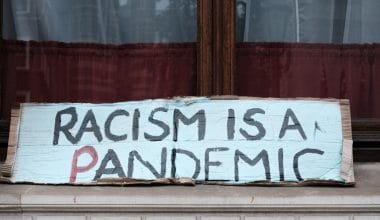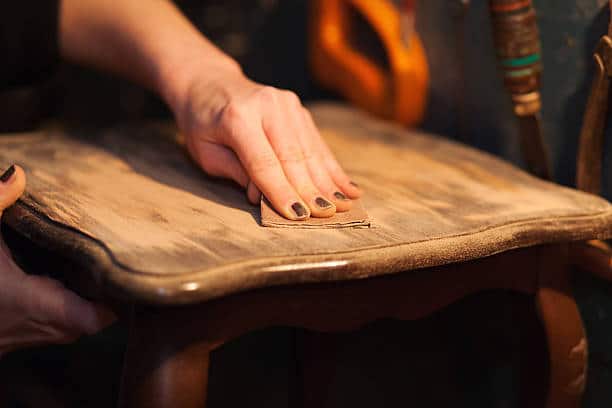Students go to Melbourne to study for a variety of reasons, including the fact that there is lots of student accommodation and adequate city transportation, a vibrant cultural environment with interesting pubs and cafes, as well as vibrant music and art scenes. Also concerts, theater plays, and sporting events are all on the calendar.
Melbourne is home to seven Australian universities, with five more having campuses there. Melbourne has three universities with over 70,000 students each (Monash University, University of Melbourne and RMIT University). However, all of Melbourne’s universities in total educate a total of 340,000 students, including 138,000 international students.
Student Accommodation Options in Melbourne
There are basically four options students have to choose from in terms of accommodation in Melbourne: School Hostel, Rental, Managed Student Accommodation and Homestay. We will be exploring these options and what they entail to help you make the best choice for yourself.
#1. School Hostel
There are a number of school owned hostels in Melbourne which you can apply for. When you apply, you can specify three to five different types of accommodations. Room availability, desired length of time, existing residence demographics, and residence eligibility requirements such as age, degree level, or other contractual commitments are among the elements that decide which residence you are assigned to.
You have the option to decline an offer for a room type or location that you are not interested in. Your application will not be canceled if you decline. Your application will be reviewed by the university, and a new offer of housing will be made to you. However, important information and restrictions will be included in your Letter of Offer and Accommodation Agreement.
Eligibility for Hostel
All present and future University of Melbourne full-time equivalent students are eligible to apply for University Accommodation. You can apply before receiving a study offer from the University, but you must show proof of enrolment at the University of Melbourne before moving in and signing an accommodation agreement. Both undergraduate and graduate students can choose from a variety of housing alternatives within the university.
You will immediately qualify for a guaranteed offer of housing if you apply as a current or incoming full-time equivalent undergraduate student, postgraduate student, or incoming Exchange or Study Abroad student.
READ ALSO: How To Get Student Accommodation In Bristol Very Cheap | Full Guide
Hostel Fees And Levies
Your lodging provider is responsible for the rent and security deposit. When you accept your reservation, the provider will inform you of the amount(s) due as well as the recurring amounts due during your stay. These payments are made to the provider directly. The manner of payment will be determined by the provider.
This is by far the most expensive option, yet it has its advantages and advantages. Living on campus not only allows you to wake up on the university’s doorstep every day, but it also allows you to save money on other expenses like as food and transportation.
The average cost of living on campus at a Melbourne university ranges from $665 to $825 per week. Keep in mind that your meals will be prepared for you every day, utilities will be provided, and you will most likely commute less than if you lived off-campus. You will, however, need to budget for eating out, medical expenses, phone bills, and entertainment. It costs $34,580 – $42,900 per year
What exactly is included in the price?
All services (water, electricity, gas, etc) are included, the Residential Life program that teaches students how to live, on-site staff is available 24 hours a day, 7 days a week to give great wellbeing assistance. Also, pools, gyms, music rehearsal spaces, additional study rooms, a theatre, or a TV room are among the facilities available through the Student Engagement and Activities Program.
Hostel Bursary
Schools in Melbourne offer Bursary to indigent students who passed the criteria. To be considered for this scholarship, you must be an Australian citizen or permanent resident, or a New Zealand citizen, who has completed Year 12 or the International Baccalaureate in Australia, and who lives in a State or Territory other than Victoria, or in a regional or remote area of Victoria, and who has applied for a University of Melbourne undergraduate degree through VTAC Special Entry Access.
Criteria for selection
The scholarship is awarded to qualifying candidates who, based on the information submitted in their VTAC SEAS application, have the highest overall level of disadvantage and have not been allocated a Melbourne Access Scholarship.
Students who applied for Access Melbourne through the VTAC Special Entry Access Scheme (SEAS) will be considered for this award automatically. Following the announcement of ATAR scores in December and January, scholarship offers are given.
For three years, this scholarship grants a $5,000 annual stipend (given in semesterly installments). If you enroll in a concurrent diploma at the University of Melbourne while studying for your Bachelor’s degree, your time will be extended by one year.
#2. Rental
When you rent a home, you get to pick your perfect location, furniture, and roommates. A room in a sharehouse can cost anywhere from $175 to $400 per week, depending on how many people you share with and where you live. Remember that bills like water, electricity, gas, and internet are normally not included in the rent payment in this type of arrangement.
You’ll need to sign a lease if you’re renting from an agent or directly from a landlord. You must guarantee that you have read and comprehended the agreement’s terms and conditions, as well as that you are signing the correct lease for the rental type.
You’ll also have to pay the agency or landlord a security deposit, commonly known as a bond. The Residential Tenancies Bond Authority must receive it (RTBA).
The agent or landlord will not have access to the bond, and you will not be able to use it to pay your rent. If you do any damage to the property while renting it, the landlord may seek compensation from the RTBA at the end of the lease.
Related Post: University of Melbourne Graduate Research Scholarships in Australia 2024
#3. Managed Student Accommodations
You can consider managed student housing and apartments if you wish to live on or near campus. This type of Accommodationsallows you to live independently while receiving help from a managed student housing provider. You won’t have to bother about furnishings, power, gas, or the phone because they’ll all be provided for you.
Apartments are frequently located in buildings with shared facilities, so you get the benefits of living in a community as well. Over 500 students are housed in several controlled student housing complexes.The following are the various types:
Accommodations managed by the university
Colleges with on-campus housing (often associated with a university) include
Scape, Iglu, UniLodge, Urbanest, Journal, The Student Housing Company, Village Melbourne City, and Atira. Due to their locations and focus on the student experience, these are a very popular alternative for international students.
A solo or twin room with a communal kitchen and bathroom is available in most flats. A bed, mattress, wardrobe, study desk, and chair are frequently included in rooms. You should have access to common areas, laundry facilities, and the internet in most cases. Some student housing facilities that are managed offer a regular cleaning service, on-site staff, and social activities.
The cost of living varies, but you should anticipate paying between $250 and $500 per week, which includes utilities and, in certain cases, internet.
#4. Homestay
Living with a family in their home is what a homestay entails. A homestay provides you with a family support system that can assist you in adjusting to your new life in Australia. You will have your own furnished bedroom and most meals provided when staying with a family at a homestay. You will also get access to the internet and other utilities.
You will not be required to clean the house, but you must keep your room clean. The family you live with determines your duties and independence. It’s also worth noting that homestays may be farther distant from school than other types of lodging.
A week in a homestay costs between $250 and $300. The cost is determined on the facilities, location, and number of meals served.
Temporary Accommodations
Temporary or short-term accommodation allows you to explore permanent living options when you first arrive in Australia. Before you come, make arrangements for short-term lodging. Housing officers or residential services are available at many institutions in Melbourne and regional Victoria to assist students in determining their alternatives.
Hostels in Melbourne and Victoria provide inexpensive, short-term lodging. The majority of them offer a mix of private rooms and dorms. Booking online on discount accommodation websites is a good way to find lower-cost hotels. Some websites provide early booking discounts, while others offer last-minute savings.
Other Important Considerations
Utilities
You should not forget to account for utilities. Your housing option may or may not include utilities. Electricity, water, gas, and internet are usually shared by renters, but if you’re renting by yourself, it’ll be more expensive. The average cost of utilities in Melbourne is:
- $500 per quarter for electricity
- $300 per quarter for water
- $169 per quarter for gas
- $120 per quarter for internet
The budget above is set based on whether this is shared among five individuals or just you. In the end, these utilities cost $780 – $4,356 per year, and annual lodging costs range from $9,100 to $42,900.
Transport
Melbourne’s trams, trains, and buses are popular modes of transportation, and with good reason: they provide convenient access to the city’s CBD and key tourist attractions. Victoria provides International Students with an iUSEpass, which provides a 50% discount on the annual cost of Myki. A Myki costs over $2000 per year on average when used six days per week, whereas an iUSEpass costs only $861.25 per year when used between Zones 1 and 2. Your need for an iUSEpass will vary depending on which lodging option you choose. Transport totals at an average of $16.50 – $38.46 per week or $861.25 – $2000 per year.
Frequently Asked Questions
Getting student accommodation in Melbourne is quite easy compared to the stress for schools in other cities.
Annual lodging costs in Melbourne range from $9,100 to $42,900.
Schools in Melbourne provide on campus accommodations. Only that they are quite expensive but also come with convenience.
In Melbourne, you can either choose to live in school hostels, managed accommodations, rentals or homestay.
The challenges that come with living in Melbourne as a student are usually those associated with transport and utilities as Melbourne is a good environment overall.
Conclusion
So, you’re considering moving to Melbourne to study but aren’t sure how much it will cost? You’ll be more successful if you plan ahead, establish financial habits, and choose realistic living options.
We’ve assembled all you need to know about planning for your big relocation in Melbourne, Australia, including average prices of accommodation, transportation and the options.
References
- cohortgo.com/en/blog/how-much-it-costs-to-live-in-melbourne-as-an-international-student
- studymelbourne.vic.gov.au/living-and-accommodation/how-to-find-accommodation




